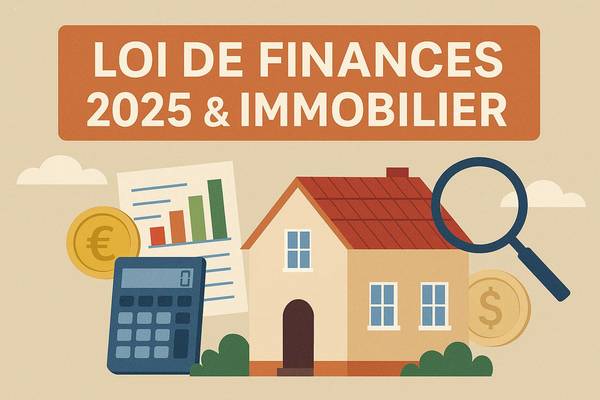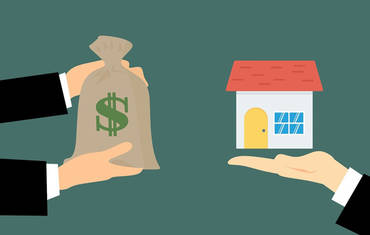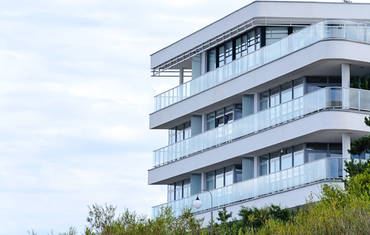Real Estate Advice
April 15, 2025
Loi de finances 2025 and real estate: what’s changing
The French Loi de finances 2025 introduces a number of changes affecting the real estate sector, particularly for property owners, landlords, and investors.

Adopted at the end of 2024, this finance bill reflects the government's desire to redefine fiscal and economic priorities related to real estate. From the extension of the zero-interest loan, tax adjustments for furnished rentals, and increased property transfer taxes to new relief for real estate donations, your trusted real estate agency in Nice Winter Immobilier breaks down the key measures, their practical scope, and their potential impact on the market in 2025.
Extension of the zero-interest loan (PTZ)
Under the Loi de finances 2025, the Prêt à Taux Zéro (PTZ), a flagship government initiative to support homeownership, is receiving a major extension. This program allows first-time buyers to finance part of the purchase of a new home interest-free.
From April 1, 2025, through December 31, 2027, the PTZ (still subject to income eligibility and limited to primary residences) will be extended to all new-build properties across France. Previously, it was restricted to certain zones and specific types of properties.
With more buyers gaining access to attractive financing, this PTZ expansion is expected to boost demand and speed up transactions. A clear benefit for buyers, and for sellers too.
Tax changes for non-professional furnished rentals (LMNP)
The Loi de finances 2025 introduces a major change in the taxation of non-professional furnished rentals (location meublée non professionnelle – LMNP). Until now, landlords could deduct property depreciation from rental income to reduce their taxable base. But this deduction will no longer apply when the property is sold.
As of 2025, depreciation will be added back into the capital gains calculation, which means landlords must include the depreciated amount in the taxable gain, potentially increasing the tax owed on resale.
Important: some categories of property, such as student housing, senior residences, or housing for people with disabilities, are exempt from this reform. In addition, the usual capital gains exemptions (after 22 years of ownership and 30 years for social charges) remain unchanged.
Extension of the “Loc’Avantages” program
The “Loc’Avantages” scheme, extended through 2027, continues to encourage affordable housing by offering tax reductions to landlords who agree to rent below market rates.
For landlords, “Loc’Avantages” provides a strategic opportunity to reduce their tax burden. By renting at capped rates to low-income tenants, they become eligible for a tax rebate.
Property owners sign a formal agreement with the National Housing Agency (Anah), committing to limit rent amounts and rent to tenants whose income falls below a set threshold.
By renewing “Loc’Avantages” through the Loi de finances 2025, the government is enabling landlords to optimize their taxes while supporting essential social needs.
Increase in property transfer taxes
Starting April 1, 2025, property transfer taxes (droits de mutation à titre onéreux – DMTO, often referred to as "notary fees") will increase by 0.5 percentage points. This measure in the Loi de finances 2025 gives local authorities more leeway in setting these taxes, with a direct impact on property purchases.
For buyers, this increase means a higher transaction cost. As a result, sellers may see a slight slowdown in demand, especially in price-sensitive markets.
However, first-time buyers are excluded from this increase and will continue to benefit from reduced transfer tax rates, which should help maintain activity in this segment.
Tax relief for real estate donations
The Loi de finances 2025 includes a new provision to encourage the transfer of real estate assets: exemption from transfer taxes for family donations made to help with the purchase or construction of a primary residence. Cash gifts from parents, grandparents, or great-grandparents aimed at helping a family member buy or renovate a property are now exempt from transfer taxes, under certain conditions.
This exemption is capped at €100,000 per donor and €300,000 per beneficiary. The condition: the property must be held for at least five years. This measure is intended to promote intergenerational solidarity while easing the tax burden on beneficiaries.
Have questions about the Loi de finances 2025? Thinking about selling your property in the Nice region, entrusting it to rental management, or buying a property in or around Nice with specific criteria? Feel free to call us or fill out the contact form and we’ll get back to you as soon as possible.






